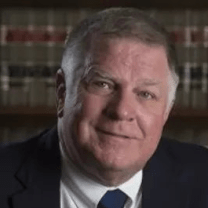
February 9, 2021 • 6:00pm • via Zoom
This one-hour course is designed to help clergy and church leadership navigate divorce conflicts in their congregation. By understanding the collaborative divorce process, clergy can better understand a more peaceful way for divorce. Both attorney John Susko and mental health counselor Elsie Lovelace bring years of experience dealing with collaborative divorce. They have witnessed healthier families when divorce was more peaceful. Please join us on Feb. 9 at 6:00 pm by Zoom for this free training.
Meet our speakers

JOHN C. SUSKO is a Former Board Certified Marital & Family attorney and a Collaborative attorney who believes that family disputes should be resolved in private conference rooms, not in a hostile public courtroom environment. His unique perspective on family stems from both his multi-disciplinary education at Washington University in St. Louis where He obtained both a JS [law degree] and an MSW [master in social work]. He has further refined his perspective with over twenty years as an attorney and mediator. As a Former Board Certified Marital & Family attorney, John has witnessed the emotional and financial effects that accompany long and drawn out divorce battles can have on families.
This realization led John to form Collaborative Family Law & Mediation, LLC., a Collaborative family law firm dedicated to bringing a more peaceful approach to family law. The Collaborative Process puts a structure in place so that the decisions made by the parties in life’s toughest and hardest moments do not have to be any more difficult than necessary.
John focuses his practice on collaborative family law, mediation, and estate planning. He has become a strong proponent of the Collaborative Process and has spearheaded the West Florida Collaborative Law practice group and serves as its first President. He encourages the use of the collaborative model in all types of family law matters, including dissolution of marriage actions, paternity, relocation, child support, prenuptial agreement, and post-judgment actions.
John has been interviewed about Collaborative Divorce in the Pensacola News Journal and on the Andrew McNair Radio Show, What Your Money Would Say on WCOA. He also regularly speaks at various civic organizations and Churches regarding the Collaborative Process. He has also lectured on various topics, including both mediation and office technology to both the American Bar Association, the Florida Bar, and the Escambia-Santa Bar Associations.
John has also written the following articles: Family Law Attorneys-Don’t Ignore Mediation, Live With It and Improve It published in the Florida Bar Journal and The Life of a Wired Attorney published in the American Journal of Family Law.

ELISE LOVELACE obtained her Counseling Psychology Master’s degree from the University of West Florida in 2007. She is a Licensed Mental Health Counselor, Licensed Marriage and Family Therapist, and a Master’s Level Certified Addictions Counselor in Pensacola, Florida. Prior to opening her private practice, she worked for Lakeview Center Inc, where she worked with individuals, couples, and families struggling with mental health, substance use, and family functioning disorders. While she is capable of seeing a number of issues related to mental and emotional health and substance use-related disorders, she is also trained in collaborative divorce which is a peaceful way to resolve a divorce. Litigated and hard-fought divorces tear families apart for the long haul and create inordinate amounts of distress on the family. She has successfully participated in a number of collaborative cases since being trained. Elise is an instructor for the Department of Children and Families for the Florida Divorce Class. This class is required for parties who file for divorce in the state of Florida. With this expertise on how to be a co-parent in the wake of and after divorce, Elise is often utilized to help reduce conflict between spouses and/or support the children and their needs in a high-conflict parental dispute during or post-divorce.
